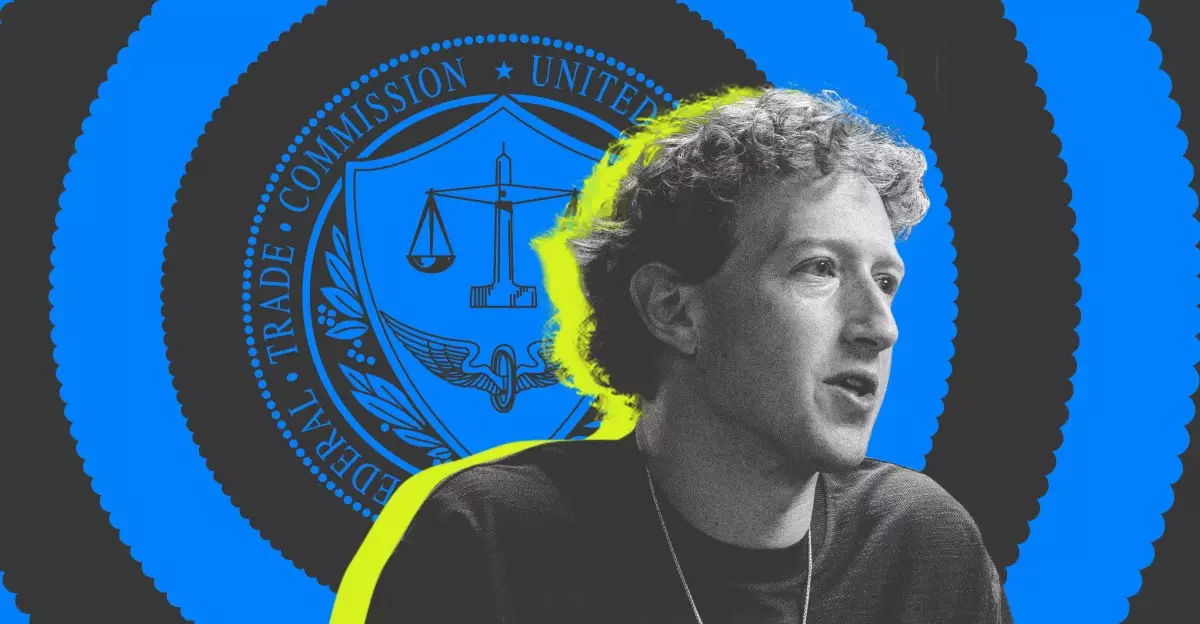Meta’s journey through the labyrinth of social media innovation might have unraveled quite differently had it not been for the strategic decisions made by its leader, Mark Zuckerberg. As the company stands at the crossroads of an antitrust battle with the Federal Trade Commission (FTC), reflections on past dilemmas reveal a deeper narrative about the future of digital interaction. In a courtroom in Washington, D.C., Zuckerberg’s testimony not only chronicled the company’s historical choices but also projected a visionary perspective on how social media could evolve.
The stakes of this ongoing legal saga are not just about monetary fines or ownership structures; they delve into the very fabric of communication in our digital age. These deliberations expose the extent to which a few leading tech companies can monopolize the market and stifle potential growth from competitors who might redefine online engagement.
The Strategic Maneuvering of Meta
What is compelling about Zuckerberg’s narrative is his acknowledgment of alternative strategies he could have pursued during the early days of social media growth. From acquiring popular platforms like Snapchat to considering the separation of Instagram into its own entity, Zuckerberg’s insights during his testimony reveal not only what Meta has accomplished but also what it could have jeopardized. Each idea — whether enticing or alarming — serves as a powerful reminder of the unpredictable nature of innovation.
Additionally, Zuckerberg’s candidness about a hypothetical mass removal of Facebook friends is astonishing. That the CEO once toyed with such a drastic shift suggests a level of dissatisfaction with the existing dynamics on social media. This admission resonates with many users who often feel inundated by the pressure of constantly managing their digital relationships. It highlights a critical question: What would authentic connection look like in a less curated, more spontaneous setting?
The Monopoly Paradox
At the crux of the FTC’s case is the allegation that Meta operates as a monopolistic entity, one that has stifled competition by acquiring smaller rivals like Instagram and WhatsApp, fearing they could disrupt its supremacy in the social networking realm. This perspective underscores a paradoxical reality of innovation: Does the acquisition of potential competitors enhance technological growth, or does it hinder it?
Zuckerberg’s argument hinges upon demonstrating the fluidity of the social media landscape. He points to formidable competitors like TikTok and YouTube as evidence that the market is not stagnating under Meta’s influence. This fluidity is essential to understanding the complexities of the current digital environment, wherein platforms evolve to meet user demands and cultural shifts swiftly. However, the question remains — can a company with such massive resources and reach genuinely allow an open market for smaller competitors to flourish?
Redefining Digital Advertising
Zuckerberg’s musings about potentially offering a feed purely composed of advertisements prompt a deeper inquiry into the nature of digital content consumption. The implication that users might perceive ads as valuable content points to a broader societal phenomenon: a shift in how we gauge authenticity in social media experiences. What does it mean for users—who have countless options—that they may welcome increased advertisement loads?
Moreover, the conversations surrounding Meta’s advertising model bring to light ethical considerations pertinent to the tech industry. Is it ethical for a company to shape its business strategy around consumer complacency, particularly against the backdrop of rising concerns over data privacy and transparency? Meta must navigate these waters skillfully, ensuring their innovations meet not only corporate objectives but also user expectations for integrity and trustworthiness.
Looking Towards the Horizon
As we dissect Meta’s past decisions and contemplate its trajectory, this moment in time encapsulates the monumental challenges faced by tech giants amid regulatory scrutiny. The potential ramifications of the FTC’s case reach far beyond corporate profits; they threaten to reshape public perceptions of how technology serves our individual and collective needs.
The crux of this antitrust debate may diverge into a dialogue about the future of social media itself—one where the balance of power shifts towards the user rather than the corporate entity. Zuckerberg’s reflections reveal a willingness to reconsider the very essence of connectivity in a world that constantly demands change.
In emphasizing these multifaceted dynamics, one can only hope that Meta not only emerges from its legal troubles but does so with newfound insights that can yield more responsible frameworks for digital interaction. The anticipation surrounding this case underscores a collective yearning for a digital ecosystem that celebrates innovation without sacrificing ethical responsibility.

